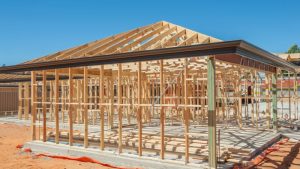How Long Is It Taking to Build a House in 2023?
Understanding Construction Timelines and Factors Influencing Them
In the dynamic world of construction, the time it takes to build a house can vary significantly based on several factors. In 2023, with advancements in technology and changes in construction practices, these timelines continue to evolve. This article delves into the various aspects that influence the duration of house construction projects and provides insights into the average time frames seen in the industry.
1. Project Planning and Design
One of the initial stages of building a house is project planning and design, which sets the foundation for the entire construction process. A well-structured and comprehensive plan can significantly impact the timeline of the project.

Detailed architectural drawings, engineering assessments, and acquiring necessary permits can take several weeks or even months. The complexity of the design, as well as the size and style of the house, will also play a role in determining the time required for this phase. Proper planning and coordination during this stage can streamline the construction process, reducing potential delays.
2. Site Preparation and Foundation
Before construction can begin, the site must be properly prepared, and the foundation needs to be laid. Factors such as soil conditions, weather, and the size of the house can affect the time required for these tasks.
Site preparation involves clearing the land, leveling the ground, and making sure it is suitable for construction. This process may involve removing trees, grading the soil, and ensuring proper drainage. Depending on the condition of the site, this stage can take a few days to a few weeks.
Next, the foundation is constructed, which provides stability and support to the entire structure. The time required for this stage depends on the type of foundation chosen, such as a concrete slab, crawl space, or basement. Typically, foundation construction takes around two to four weeks.
3. Framing and Exterior Construction
The framing stage involves erecting the basic structure of the house, including walls, floors, and the roof. This stage requires skilled carpenters and typically takes a considerable amount of time.
Using pre-fabricated components can help expedite this process, but the overall time frame is still influenced by the size and complexity of the house. On average, framing a house can take anywhere from a few weeks to a couple of months.
Once the framing is complete, the exterior construction begins, including the installation of windows, doors, and roofing materials. This phase is crucial for weatherproofing the house and can take several weeks, depending on the intricacy of the design.

4. Mechanical Systems and Interior Finishes
The installation of mechanical systems, such as plumbing, electrical wiring, and HVAC (heating, ventilation, and air conditioning), is a vital stage of construction. It ensures the functionality and comfort of the house. For new homes bondi see here.
Simultaneously, interior finishes are applied, including insulation, drywall, flooring, and cabinetry. The time required for these tasks depends on the size of the house and the complexity of the chosen finishes.
On average, the installation of mechanical systems and interior finishes can take several weeks to a few months, as these tasks require attention to detail and coordination among various tradespeople.
5. Final Inspections and Completion
Before a house is deemed ready for occupancy, it must pass final inspections to ensure compliance with building codes and regulations. These inspections cover areas such as structural integrity, electrical wiring, plumbing, and fire safety.
The time required for inspections can vary depending on the location and the workload of local authorities. Once all inspections are successfully completed, any necessary corrections or adjustments are made, and the house is ready for final touches and cleaning.
After completion, the homeowner can move in, and the construction process is officially concluded. The overall timeline for a house construction project in 2023 can range from six months to over a year, depending on the aforementioned factors and any unforeseen circumstances that may arise during the construction process.
Conclusion
Building a house in 2023 involves various stages and factors that influence the time required for completion. From project planning and design to final inspections and completion, each phase contributes to the overall timeline. By understanding these factors and ensuring efficient coordination among the involved parties, homeowners and builders can work together to minimize delays and successfully bring their dream homes to life.
Keep in mind that these timelines are general estimates, and individual projects may vary. Consulting with professional builders and architects can provide more accurate insights into the specific time frames for your house construction project in 2023.
